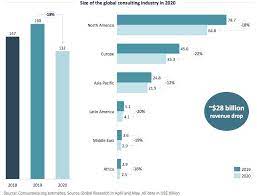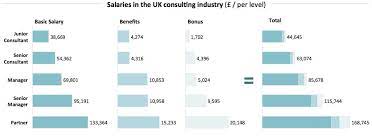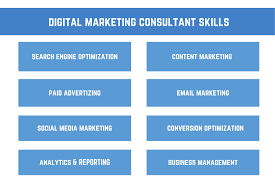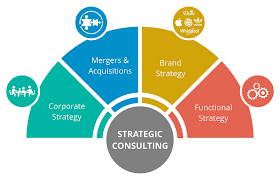Consultancy: Unlocking the Power of Expertise
In today’s rapidly changing business landscape, organisations face numerous challenges and complexities. From strategic decision-making to operational efficiency, businesses often require external expertise to navigate these hurdles successfully. This is where consultancy services come into play, offering a valuable resource for businesses seeking specialised knowledge and guidance.
Consultancy is a collaborative partnership between experienced professionals and organisations, aimed at providing expert advice and solutions to address specific business needs. These professionals, known as consultants, bring a wealth of industry knowledge, skills, and insights to the table. Their objective is to support businesses in achieving their goals, enhancing performance, and driving growth.
One of the primary benefits of consultancy lies in its ability to offer an unbiased perspective. Consultants bring an outsider’s viewpoint, free from internal biases or preconceived notions. This fresh outlook allows them to identify inefficiencies, uncover hidden opportunities, and propose innovative solutions that may have been overlooked by internal teams.
Consultants also possess a deep understanding of industry best practices and emerging trends. They stay abreast of market dynamics and technological advancements relevant to their areas of expertise. This knowledge enables them to provide valuable insights on how businesses can adapt and thrive in an ever-evolving environment.
Moreover, consultants bring extensive experience gained from working with various clients across different sectors. This exposure equips them with a broad understanding of diverse business models and challenges. As a result, they can draw upon this collective knowledge base to tailor strategies that are specifically aligned with each client’s unique requirements.
Another key aspect of consultancy is its ability to provide targeted solutions for specific projects or initiatives. Whether it’s devising a marketing strategy for product launch or implementing process improvements for operational efficiency, consultants possess the specialised skills needed for these focused tasks. By engaging consultants for such projects, businesses can benefit from their expertise without committing to long-term employment contracts.
Furthermore, consultancy offers flexibility in terms of engagement models. Businesses can choose from various options, such as project-based consultancy, interim management, or ongoing advisory services. This flexibility enables organisations to access the right level of expertise at the right time, aligning with their specific needs and budgetary constraints.
Collaboration is at the heart of successful consultancy engagements. Consultants work closely with internal stakeholders, actively involving them in the process. This collaborative approach ensures knowledge transfer and empowers internal teams to sustain the positive changes brought about by the consultancy engagement.
In conclusion, consultancy plays a vital role in helping businesses overcome challenges and achieve their objectives. By leveraging external expertise, organisations can tap into a wealth of knowledge and experience that accelerates their growth and success. Whether it’s strategic planning, operational improvements, or tackling complex problems, consultants offer valuable insights and tailored solutions that unlock the full potential of businesses in today’s dynamic marketplace.
Advantages of Consultancy: Access to Experts, Cost-Effectiveness, Objectivity, Fresh Perspective, Increased Efficiency, Improved Performance
- Access to experts
- Cost effective
- Objectivity
- Fresh perspective
- Increased efficiency
- Improved performance
Challenges in Consultancy: Exploring Expensive Fees, Lack of Accountability, Conflict of Interest, and Dependency on Consultants
- Expensive Fees
- Lack of Accountability
- Conflict of Interest
- Dependency on Consultants
Access to experts
Access to Experts: Unlocking Specialized Knowledge through Consultancy
In the complex and rapidly evolving business world, making informed decisions is crucial for success. However, staying up-to-date with the latest industry trends and acquiring specialized knowledge can be a daunting task. This is where consultancy services shine, offering businesses access to a diverse range of experts with deep expertise in their respective fields.
One of the key advantages of consultancy is the ability to tap into a network of professionals who possess specialized knowledge and skills. These experts have honed their craft through years of experience and continuous learning, making them invaluable resources for businesses seeking guidance in specific areas.
By engaging consultants, businesses gain access to a wealth of expertise that may not be readily available within their own organization. Whether it’s legal advice, financial analysis, marketing strategies, or IT solutions, consultants bring a breadth of knowledge that spans across various disciplines. This allows businesses to make well-informed decisions based on accurate and up-to-date information.
Consultants act as trusted advisors who understand the nuances and complexities of their respective industries. They keep abreast of industry trends, regulatory changes, emerging technologies, and best practices. Their deep understanding enables them to provide insights that are tailored to each client’s unique circumstances.
Moreover, consultants often have experience working with diverse clients across different sectors. This exposure equips them with a broad perspective on industry challenges and opportunities. By drawing upon this collective experience, consultants can offer innovative solutions that have been tested in real-world scenarios.
The access to experts provided by consultancy services extends beyond just knowledge transfer. Consultants also bring valuable networks and connections within their industries. These networks can be leveraged for collaboration or partnerships that may benefit your business in various ways. The ability to tap into these networks can open doors to new opportunities and expand your reach within your industry.
Furthermore, consultants act as catalysts for organizational growth by fostering a culture of continuous learning within businesses they work with. Through their expertise and guidance, they empower internal teams to develop new skills and expand their knowledge base. This not only enhances the capabilities of the organization but also ensures that the benefits of consultancy are sustained long after the engagement ends.
In conclusion, consultancy offers businesses a gateway to a world of specialized knowledge and expertise. By accessing a network of experts, businesses can make informed decisions that drive growth and success. Consultants provide valuable insights, industry connections, and tailored solutions that enable businesses to navigate challenges with confidence. Whether it’s gaining legal advice or implementing cutting-edge technologies, consultants bring a wealth of expertise that helps businesses thrive in today’s competitive landscape.
Cost effective
Cost Effective: The Value of Consultancy Services
In today’s competitive business environment, cost management is a critical factor for success. Organisations are constantly seeking ways to optimize their resources and reduce expenses without compromising on quality or efficiency. This is where consultancy services shine, offering a cost-effective solution that provides businesses with the expertise they need, precisely when they need it.
One of the significant advantages of engaging a consultant is the cost savings it brings compared to hiring a full-time employee. When recruiting a new employee, businesses must consider various expenses, including salary, benefits, training, and overhead costs. These costs can quickly add up and strain the budget.
On the other hand, by engaging a consultant, businesses only pay for the specific services required for a particular project or timeframe. This flexibility allows organisations to control costs more effectively by avoiding unnecessary expenses associated with full-time employees.
Consultants are typically engaged for short-term assignments or projects with defined deliverables. They bring their expertise and focus solely on delivering results within the agreed-upon scope. This targeted approach ensures that businesses get maximum value for their investment without incurring additional overheads or long-term commitments.
Moreover, consultants are often highly experienced professionals who have honed their skills through years of practice in their respective fields. Their expertise allows them to work efficiently and effectively, delivering quality outcomes in shorter timeframes. This not only saves time but also reduces costs associated with prolonged project durations.
In addition to cost savings related to personnel expenses, consultants can help identify potential cost-saving opportunities within an organisation’s operations. With their fresh perspective and extensive industry knowledge, consultants can evaluate processes and systems to pinpoint areas where efficiencies can be improved or redundant practices eliminated. By streamlining operations and reducing waste, businesses can achieve significant cost savings in the long run.
Another aspect that contributes to the cost-effectiveness of consultancy services is scalability. Businesses can engage consultants as needed based on fluctuating demand or project requirements. This flexibility allows organisations to scale up or down without the financial burden of hiring or laying off employees. Consultants can seamlessly adapt to changing needs, providing support during busy periods or helping bridge skills gaps without long-term financial commitments.
Ultimately, the cost-effectiveness of consultancy services lies in their ability to provide businesses with access to specialised expertise without the overheads associated with full-time employment. By engaging consultants, organisations can tap into a pool of talented professionals who bring valuable insights and skills to address specific challenges or opportunities. This targeted approach ensures that businesses achieve their goals while optimizing their resources and maintaining a competitive edge.
In conclusion, the cost-effective nature of consultancy services makes them an attractive option for businesses seeking expert guidance and support. By engaging consultants, organisations can leverage external expertise precisely when required, avoiding unnecessary expenses and achieving cost savings. With their ability to deliver quality outcomes efficiently and adapt to changing needs, consultants offer a valuable solution that maximises value for businesses in today’s dynamic marketplace.
Objectivity
Objectivity: The Invaluable Asset of Consultancy
When it comes to making critical decisions or solving complex problems within a business or project, having an objective perspective is crucial. This is where the pro of consultancy truly shines. Consultants bring a unique value by offering impartiality and an objective point of view that can be invaluable for decision making and problem solving.
One of the primary advantages of engaging consultants is their ability to detach themselves from internal biases or preconceived notions. They enter the scene with fresh eyes, unencumbered by personal agendas or office politics. This objectivity allows them to assess situations with clarity and provide unbiased recommendations based solely on what is best for the business.
Consultants are skilled at conducting thorough analyses, examining various aspects of a business or project without being influenced by internal dynamics. They delve into the details, scrutinize processes, and evaluate performance metrics objectively. By doing so, they can identify areas for improvement that may have been overlooked or dismissed due to internal biases.
The impartiality of consultants also plays a vital role in decision making. When faced with complex choices, businesses often encounter internal debates or conflicting opinions among stakeholders. In such situations, consultants act as neutral facilitators who can guide discussions based on facts and data rather than personal preferences. Their objective viewpoint helps cut through subjective arguments and leads to more informed and rational decisions.
Moreover, consultants possess extensive experience working across different industries and sectors. This exposure equips them with a broad knowledge base that enables them to draw comparisons and benchmark against industry best practices. By leveraging this expertise, they provide clients with insights on how similar challenges have been addressed elsewhere, offering alternative perspectives that may not have been considered internally.
The objectivity provided by consultants also proves beneficial in problem-solving scenarios. When businesses face complex issues or crises, emotions can run high, leading to tunnel vision or reactive decision-making. Consultants bring a calm and rational approach to problem-solving, allowing them to objectively analyze the situation, identify root causes, and develop effective strategies for resolution.
Furthermore, consultants are not bound by organizational hierarchies or internal politics. This freedom allows them to challenge the status quo and ask difficult questions that may be uncomfortable for internal employees. By doing so, they help uncover underlying issues that might have been ignored or avoided due to internal sensitivities.
In a rapidly changing business environment, objectivity is a valuable asset. It enables businesses to see beyond their own perspectives and consider alternative viewpoints. By engaging consultants who bring impartiality and an objective point of view, organizations can make more informed decisions, solve complex problems effectively, and ultimately drive their businesses towards success.
In summary, the objectivity provided by consultants is a pro that cannot be overstated. Their ability to offer an unbiased perspective on businesses or projects brings clarity to decision-making processes and problem-solving efforts. By leveraging their impartiality, organizations can tap into a wealth of expertise that helps them navigate challenges with confidence and achieve their goals.
Fresh perspective
Fresh Perspective: Igniting Innovation and Change through Consultancy
In the fast-paced world of business, innovation is often the key to staying ahead of the competition. Embracing new ideas and approaches can propel organisations towards success. One significant advantage that consultancy brings to the table is its ability to provide a fresh perspective.
When businesses operate internally, it’s natural for them to develop certain biases or blind spots. These biases can hinder growth and limit opportunities for innovation. However, by engaging a consultant, organisations gain access to an outsider’s viewpoint – one unburdened by internal politics or preconceived notions.
A consultant brings with them a wealth of experience from working with various clients across different industries. This exposure allows them to see patterns, trends, and solutions that may not be immediately apparent within the organisation. By leveraging their external perspective, consultants can identify inefficiencies, untapped potential, and innovative ideas that may have been overlooked by internal teams.
Moreover, consultants are well-versed in industry best practices and emerging trends. They stay updated on the latest advancements relevant to their field of expertise. This knowledge enables them to introduce fresh ideas and solutions that align with current market dynamics.
By injecting new perspectives into your business, consultants can spark innovation and drive change. They challenge existing assumptions and encourage creative thinking among your team members. This process fosters a culture of continuous improvement where new ideas are embraced and explored.
Consultants also act as catalysts for change within organisations. They bring an objective viewpoint that allows them to assess processes, systems, and structures with a critical eye. By identifying areas for improvement or transformation, they help businesses adapt to evolving market demands more effectively.
Furthermore, consultants facilitate knowledge transfer between themselves and internal stakeholders. They share their expertise through workshops, training sessions, or collaborative projects. This exchange not only enhances the skills of internal teams but also empowers them to sustain the positive changes brought about by consultancy.
In a world where innovation is essential for survival, the fresh perspective offered by consultants can be a game-changer. Their ability to introduce new ideas, challenge the status quo, and drive change within organisations fuels growth and success. By embracing consultancy, businesses open themselves up to a world of possibilities and ensure they remain at the forefront of their industry.
Increased efficiency
Increased Efficiency: The Power of Outsourcing to Consultants
In today’s fast-paced business world, efficiency is key to staying competitive and driving growth. One significant advantage of consultancy is its ability to enhance overall efficiency within an organisation by outsourcing specific tasks or projects to experienced professionals. By doing so, businesses can free up valuable time for their staff members, enabling them to focus on core areas where their expertise is most needed.
When businesses choose to outsource certain tasks or projects to consultants, they effectively delegate responsibilities to individuals with specialised knowledge and skills in those particular areas. This allows the consultants to handle these tasks efficiently and effectively, leveraging their expertise and experience.
By relieving internal staff members of these additional responsibilities, organisations can ensure that their employees can devote their time and energy towards critical areas where they can make the most impact. This strategic allocation of resources leads to increased productivity and effectiveness within the organisation.
Outsourcing tasks or projects also eliminates the need for internal staff members to acquire new skills or undergo extensive training for non-core activities. Instead, consultants bring their existing expertise and industry knowledge, allowing them to hit the ground running. This saves valuable time that would otherwise be spent on learning new skills or processes.
Additionally, consultants often have access to cutting-edge tools, technologies, and methodologies that may not be readily available within the organisation. By leveraging these resources, consultants can streamline processes and implement efficient solutions that drive productivity and reduce inefficiencies.
Moreover, outsourcing certain tasks or projects provides a fresh perspective on existing processes and workflows. Consultants bring an outsider’s viewpoint free from internal biases or preconceived notions. They can identify bottlenecks or areas for improvement more objectively and propose innovative strategies that may have been overlooked by internal teams.
The increased efficiency resulting from outsourcing tasks or projects allows businesses to achieve more in less time. It enables them to meet deadlines more effectively, deliver high-quality outputs consistently, and adapt swiftly to changing market demands. Ultimately, this improved efficiency translates into a competitive advantage and positions the organisation for long-term success.
In conclusion, by outsourcing certain tasks or projects to consultants, businesses can unlock increased efficiency within their organisation. This strategic decision frees up time for internal staff members to focus on core areas where their expertise is most valuable. With specialised knowledge, access to resources, and a fresh perspective, consultants can streamline processes and drive productivity. Embracing consultancy as a means to increase efficiency empowers organisations to achieve more in less time, ultimately leading to sustainable growth and success.
Improved Performance: Unlocking Business Success through Consultancy
In today’s competitive business landscape, achieving and maintaining high performance is crucial for long-term success. This is where consultancy services prove to be a game-changer, as they bring valuable skills and experience that can significantly enhance performance in various areas of your business.
One of the key benefits of engaging consultants is their ability to improve performance in critical aspects such as customer service, team building, and sales strategies. These consultants possess a wealth of knowledge and expertise acquired through their work with diverse clients across different industries.
When it comes to customer service, consultants can help businesses develop effective strategies to enhance the overall customer experience. They have a deep understanding of customer expectations and can provide insights on how to exceed those expectations. By implementing tailored solutions, businesses can build stronger customer relationships, increase satisfaction levels, and ultimately drive customer loyalty.
Team building is another area where consultants excel in improving performance. They understand the dynamics of effective teamwork and can provide guidance on fostering collaboration, communication, and synergy within teams. By identifying strengths and weaknesses within teams, consultants can implement targeted interventions that lead to improved productivity, morale, and overall team performance.
Sales strategies play a vital role in driving revenue growth for businesses. Consultants bring extensive experience in sales techniques and market trends. They can assess existing sales processes, identify areas for improvement, and develop customised strategies that align with your business goals. By optimising sales strategies through the guidance of consultants, businesses can unlock their full potential for increased profits over time.
Furthermore, consultants offer an objective perspective on challenges hindering performance within your organisation. They are equipped with analytical skills that allow them to identify inefficiencies or bottlenecks that may be impacting productivity or hindering growth. By conducting thorough assessments and analyses, they provide actionable recommendations that address these issues head-on.
It’s important to note that improved performance through consultancy is not just a short-term fix; it yields long-term benefits. The expertise and strategies implemented by consultants have a lasting impact on your business operations, leading to sustained growth and profitability.
In conclusion, consultancy services offer businesses the opportunity to tap into valuable skills and experience that can significantly improve performance in crucial areas such as customer service, team building, and sales strategies. By leveraging the knowledge and expertise of consultants, businesses can enhance their overall performance, leading to increased profits over time. Whether it’s refining customer service practices, fostering effective teamwork, or optimising sales strategies, consultants play a vital role in unlocking business success through improved performance.
Expensive Fees
Expensive Fees: Evaluating the Cost-Effectiveness of Consultancy
While consultancy services offer a range of benefits, one notable con is the potential for expensive fees. Hiring a consultant can be a significant investment for businesses, and it’s crucial to carefully consider the cost-effectiveness of such engagements.
Consultants bring specialised expertise and insights to the table, which can undoubtedly add value to an organisation. However, it’s essential to weigh the benefits against the associated costs. The fees charged by consultants can vary depending on factors such as their level of experience, reputation, and the complexity of the project.
One aspect that contributes to the higher costs is the extensive knowledge and experience that consultants bring. Their expertise often comes from years of working across various industries and tackling diverse challenges. This level of proficiency commands a premium price tag.
Additionally, consultants typically have overhead costs associated with running their own businesses or being part of consultancy firms. These expenses may include office space, technology infrastructure, ongoing professional development, and marketing efforts. All these factors contribute to higher fees charged by consultants.
When considering hiring a consultant, it’s important for businesses to evaluate whether the potential benefits outweigh the financial investment required. Some key questions to ask include:
- Is there sufficient internal capacity or expertise within the organisation to address the specific challenge or project? If so, it might be more cost-effective to develop internal capabilities rather than outsourcing.
- Will engaging a consultant result in long-term benefits or improved efficiency that justifies the initial expense? It’s important to assess whether the expected return on investment (ROI) will exceed the cost incurred.
- Can alternative solutions or resources be explored that offer similar expertise at a lower cost? For instance, training existing employees or seeking mentorship from industry experts might provide comparable outcomes at a reduced expense.
- Are there opportunities for collaboration or knowledge-sharing with other organisations in similar industries? Pooling resources and sharing costs can be a viable option, particularly for smaller businesses with limited budgets.
By critically evaluating these factors, businesses can make informed decisions about whether the cost of consultancy is justifiable and aligns with their overall financial strategy. It’s crucial to strike a balance between accessing external expertise and managing expenses effectively.
Furthermore, when engaging consultants, it’s advisable to establish clear expectations and deliverables upfront. This ensures that the value provided by the consultant aligns with the agreed-upon fees. Regular communication and monitoring of progress also help to ensure that the consultancy engagement remains on track and delivers the desired outcomes.
In conclusion, while consultancy services can be expensive, it’s essential to carefully assess their cost-effectiveness before engaging a consultant. By evaluating internal capabilities, exploring alternative solutions, and considering long-term benefits, businesses can make informed decisions that optimize their investment in consultancy services.
Lack of Accountability
Lack of Accountability: A Challenge in Consultancy Engagements
While consultancy services offer numerous benefits, it is important to acknowledge the potential challenges that may arise. One notable con of consultancy is the issue of accountability, particularly when it comes to meeting expectations and timelines.
In any business engagement, accountability is a crucial element for success. However, due to the nature of consultancy projects and the dynamics involved, holding consultants accountable can sometimes prove challenging.
One primary reason for this challenge is the inherent knowledge gap between consultants and the internal teams they work with. Consultants are often brought in for their specialised expertise and external perspective. While this brings valuable insights to the table, it can also create a disconnect between consultants and the day-to-day operations of the organisation.
This disconnect can lead to misalignment in expectations. If project goals or desired outcomes are not clearly communicated or understood by both parties, it becomes difficult to establish clear benchmarks for success. This lack of clarity can make it harder to hold consultants accountable if their deliverables fall short or do not meet agreed-upon timelines.
Additionally, consultancy projects often involve complex and multifaceted challenges. These projects may require significant time and effort from both consultants and internal teams to achieve desired results. If there is insufficient communication or collaboration between all stakeholders involved, it becomes harder to track progress and ensure accountability at every stage of the project.
Furthermore, consultants typically operate on a contractual basis, which may have limitations in terms of enforceable penalties or consequences if expectations are not met. This can create a sense of ambiguity when it comes to holding consultants accountable for their performance.
However, it’s essential to note that these challenges can be mitigated through proactive measures. Clear communication from the outset is crucial in setting expectations and establishing key performance indicators (KPIs) that both parties agree upon. Regular check-ins and progress updates throughout the project duration can help identify any issues early on and allow for course corrections if necessary.
Moreover, building strong relationships and fostering open lines of communication between consultants and internal teams can help bridge the knowledge gap and ensure a shared understanding of project objectives. This collaboration promotes a sense of collective responsibility, making it easier to address accountability concerns effectively.
In conclusion, while the lack of accountability can be a challenge in consultancy engagements, it is not an insurmountable obstacle. By establishing clear expectations, maintaining open communication channels, and fostering collaboration between consultants and internal teams, businesses can overcome this con and ensure successful outcomes from their consultancy projects.
Conflict of Interest
Conflict of Interest in Consultancy: Navigating Biased Advice
While consultancy services offer numerous benefits, it is important to acknowledge that there can be potential downsides as well. One significant concern is the presence of a conflict of interest, where consultants may have their own interests at stake when providing recommendations to clients. This situation can lead to biased advice or decisions that may not align with the best interests of the client.
A conflict of interest arises when a consultant has personal or financial incentives that could influence their objectivity. For example, a consultant may have partnerships or affiliations with specific vendors or suppliers, leading them to recommend solutions that benefit those parties rather than prioritising what is truly best for the client.
This conflict can compromise the integrity and credibility of the consultancy engagement. Clients rely on consultants for their expertise and impartiality, expecting unbiased guidance to make informed decisions. However, when consultants have conflicting interests, it raises questions about the reliability and independence of their advice.
To mitigate this risk, it is crucial for businesses to conduct thorough due diligence when selecting a consultancy partner. This includes evaluating the consultant’s reputation, track record, and potential conflicts of interest. Open communication and transparency are vital in ensuring that both parties are aligned on objectives and expectations from the outset.
Moreover, establishing clear contractual agreements can help address potential conflicts proactively. Contracts should include provisions that require consultants to disclose any potential conflicts of interest and take necessary steps to mitigate them. This allows clients to make informed decisions based on complete information and gives them confidence in the consultant’s commitment to acting in their best interests.
Clients can also proactively engage in monitoring and oversight throughout the consultancy engagement. Regular check-ins, progress reports, and open dialogue foster transparency and enable clients to assess whether recommendations align with their goals or if biases are influencing decision-making. Maintaining an ongoing dialogue helps build trust between both parties while ensuring accountability.
Additionally, businesses can consider involving internal stakeholders in the decision-making process. By including key personnel from various departments, the client can benefit from diverse perspectives and reduce the risk of being solely dependent on external advice. This collaborative approach helps balance external expertise with internal insights and ensures decisions are made in the best interest of the organisation as a whole.
While conflicts of interest pose a potential challenge in consultancy engagements, it is important to note that not all consultants have conflicting motives. Many reputable consultants prioritize their clients’ interests above all else, maintaining professional integrity and providing unbiased advice. By exercising due diligence, fostering open communication, and establishing clear expectations, businesses can navigate this con effectively and reap the benefits of working with trustworthy consultants.
Dependency on Consultants
Dependency on Consultants: Maintaining a Balance of Expertise
While consultancy services offer numerous benefits, it is essential to recognize and address potential drawbacks. One significant concern is the risk of clients becoming overly dependent on consultants, which can result in a lack of internal knowledge and skills within their organization.
When businesses heavily rely on consultants for critical decision-making or ongoing operations, it can create a sense of dependency. While consultants bring valuable expertise to the table, it is crucial for organizations to strike a balance between external guidance and internal capabilities.
One consequence of excessive reliance on consultants is the erosion of internal knowledge and skills. If employees consistently defer to external experts without actively participating in problem-solving or decision-making processes, they may miss out on opportunities for growth and development. Over time, this can lead to a decline in the organization’s ability to independently tackle challenges and innovate.
Additionally, an overreliance on consultants can result in a lack of ownership within the organization. When employees do not have sufficient involvement or responsibility in key projects or initiatives, they may feel disconnected from the outcomes. This detachment can hinder their commitment and engagement towards achieving organizational goals.
Moreover, an organization that solely depends on external consultants may face difficulties when those consultants are no longer available or accessible. Changes in circumstances such as budget constraints or consultant availability could leave an organization without immediate access to necessary expertise. This sudden gap can disrupt operations and hinder progress if there are no internal resources equipped with the required knowledge and skills.
To mitigate these risks, organizations should adopt a strategic approach towards consultancy engagements. They should view consultants as partners who enhance existing capabilities rather than replace them entirely. It is crucial for businesses to invest in developing their employees’ skills through training programs, mentorship opportunities, and knowledge-sharing initiatives.
By fostering a culture of continuous learning and development internally, organizations can build internal expertise that complements the contributions made by external consultants. This approach not only ensures that employees remain engaged and motivated but also allows the organization to retain institutional knowledge and expertise for the long term.
Furthermore, organizations should actively involve internal stakeholders in consultancy projects. This collaboration fosters knowledge transfer and empowers employees to learn from consultants’ expertise. It also helps in building a sense of ownership, as employees feel more connected to the outcomes and are better equipped to sustain positive changes beyond the consultancy engagement.
In conclusion, while consultancy services bring valuable insights and expertise, it is essential for organizations to guard against excessive dependency on external consultants. By striking a balance between external guidance and internal capabilities, businesses can maintain a strong foundation of knowledge and skills within their organization. This approach ensures that they are well-equipped to tackle challenges independently while leveraging the benefits that consultants offer in achieving their goals.








